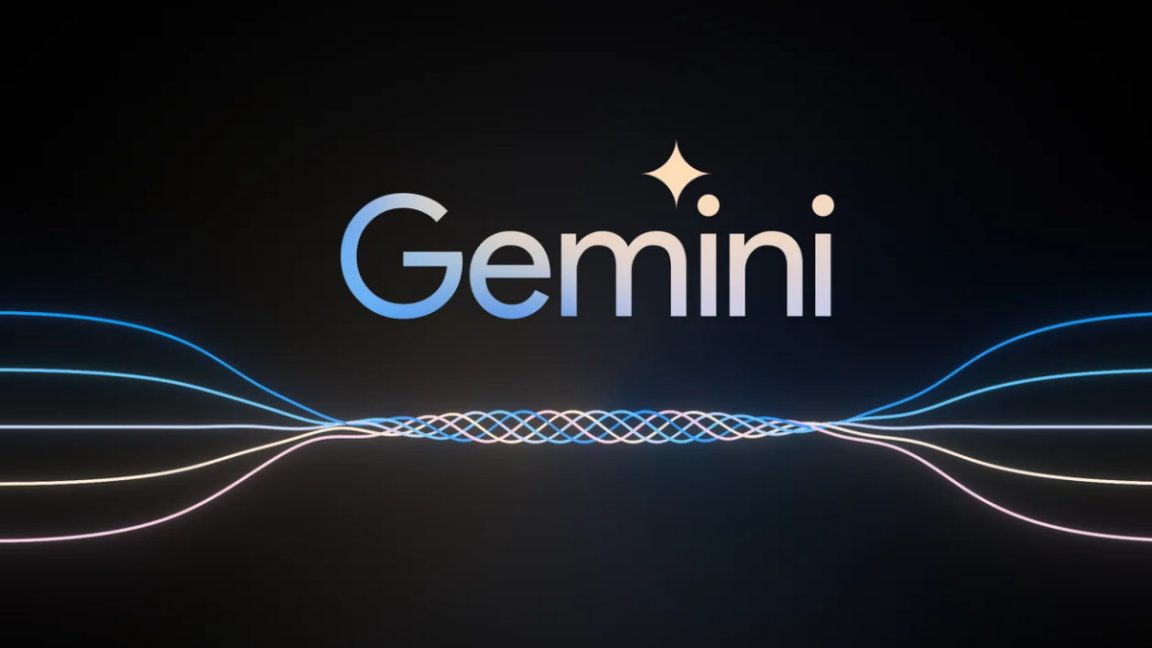New plans will be cheaper for those who want Gemini, pricier for those who don’t.

The Google Gemini logo. Credit: Google
Google has added AI features to its regular Workspace accounts for business while slightly raising the baseline prices of Workspace plans.
Previously, AI tools in the Gemini Business plan were a $20 per seat add-on to existing Workspace accounts, which had a base cost of $12 per seat without. Now, the AI tools are included for all Workspace users, but the per-seat base price is increasing from $12 to $14.
That means that those who were already paying extra for Gemini are going to pay less than half of what they were—effectively $14 per seat instead of $32. But those who never used or wanted Gemini or any other newer features under the AI umbrella from Workspace are going to pay a little bit more than before.
Features covered here include access to Gemini Advanced, the NotebookLM research assistant, email and document summaries in Gmail and Docs, adaptive audio and additional transcription languages for Meet, and “help me write” and Gemini in the side panel across a variety of applications.
Ars Video
How Lighting Design In The Callisto Protocol Elevates The Horror
Google says that it plans “to roll out even more AI features previously available in Gemini add-ons only.”
This perhaps not-so-coincidentally follows a recent announcement from Microsoft that Copilot Pro AI features would be baked into the base cost of Microsoft 365 Personal and Family subscriptions.
As is often the case with these enterprise software suites, the fine print is complicated, with varying terms for different kinds of users.
As a top-level summary: Customers will be on this new pricing scheme immediately, while existing Workspace accounts begin on March 17. Those who’ve been shelling out $20 a month per seat for Gemini for Workspace won’t be charged for that subscription anymore starting on February 1, but they’ll retain access. These changes don’t yet apply to small-business customers, though—but Google suggests that’s temporary. Likewise, these changes aren’t happening right now for education and nonprofit accounts.
Google outlines the various edge cases in detail in its blog post if you care to dig in.
Until recently, LLM- and deep learning-based features were generally treated as an extra or separate service by SaaS companies, but we’re seeing a recent shift to baking them right into the core offerings like any other feature, and this is part of that trend.





